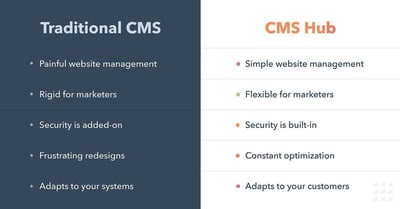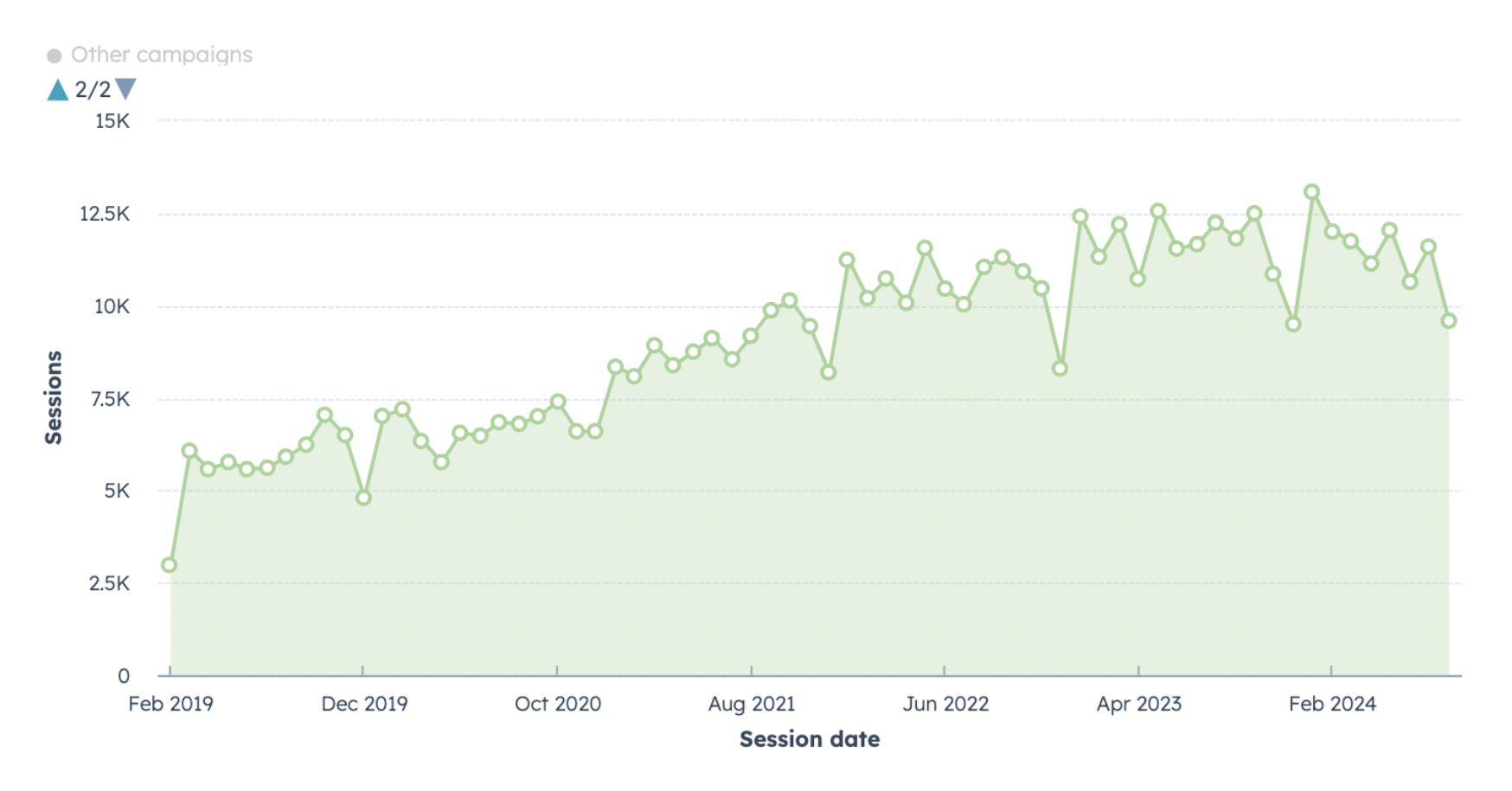Should You Migrate Your Website to HubSpot CMS?
 There are a number reasons you may be considering using HubSpot CMS (content management system) for your website. You may be using HubSpot for landing pages, CTAs, lead nurturing emails, and other marketing activities. You may even be publishing your blog on HubSpot, but still have your website in WordPress, Joomla, or another platform. Or you may not be using HubSpot at all, but just refreshing your website and wondering whether you should have your site built on this platform.
There are a number reasons you may be considering using HubSpot CMS (content management system) for your website. You may be using HubSpot for landing pages, CTAs, lead nurturing emails, and other marketing activities. You may even be publishing your blog on HubSpot, but still have your website in WordPress, Joomla, or another platform. Or you may not be using HubSpot at all, but just refreshing your website and wondering whether you should have your site built on this platform.
Here are five reasons why you might want to consider consolidating your marketing hub by migrating your website onto the Site Pages tool of HubSpot (which is where the CMS is located for HubSpot customers):
1. Save time and money on technical updates and maintenance
With open-source software, like WordPress, you need someone to regularly update the many plug-ins that it took to make the site function. There are likely customizations done to the templates and plug-ins—hacks to get features to do everything your team thought the website should do. When your site needs updating, and the original developer is long gone, no one will know how to fix or update the site.
Additionally, the WordPress software will have been installed on a hosting server that makes its own updates that have the potential to render some function of your site mysteriously nonfunctional. We've seen this cause crises for clients, creating an urgent need for a new developer to come to the rescue. It's not uncommon for the process of repairing these issues to cost thousands of dollars, partially to research a solution on WordPress developer forums, and partly to implement and test that solution.
Sites on the HubSpot CMS have the benefits of:
- Full technical support from HubSpot
- HubSpot's constant maintenance and security updates to the server and software, which they do automatically, without bothering you
- Hosting that is built into your software subscription, so you don't have to keep track of a separate hosting account
- SSL included for all customers
In our experience, this means clients and the marketing team can focus more on the strategy of the website: how it will best function as your marketing hub. Not on having to fix the latest hack or malfunction.
2. One simple interface—and no third-party plug-ins to test out, keep track of, or to risk crashing your site
Ever experience the white screen of death on your WordPress website or admin area? Every time your team or developer loads in a new third-party plug-in to give your site an extra feature or to make a current feature function properly, you are at risk of crashing your site. Not all plug-ins play well together, and you never know when they will conflict.
HubSpot’s CMS does not use third-party plug-ins. All the modules you need to support your website’s inbound marketing strategy are built in. If there is function you need that truly supports your marketing goals, and it's not available in the out-of-box modules, the CMS is flexible and customizable, and it can be created using HubSpot's own code language and integrated anywhere in your templates.
3. A CMS site is mobile-optimized out-of-the-box
With built-in site responsiveness, HubSpot’s base templates do not need any additional coding for mobile optimization, so you do not have to worry about spending time and money to create whole sets of pages and styles so that the site will behave across all devices.
4. Smart content and personalization
Probably the biggest game changer when it comes to migrating to the CMS is the ability to display smart and personalized content. You can create buckets on your website that can contain content customized for each lead or visitor.
You can give customers a more tailored experience than other visitors or show a different homepage for different industries.
You can give first-time visitors different experiences based on their device, country, or referral source.
The possibilities for integrating website experience personalization into your inbound strategy within the HubSpot CMS are endless.
5. Fully integrated inbound marketing hub
With the HubSpot CMS, you site is fully integrated with all of your other marketing channels. It’s all fully cooperative and interconnected.
With a completed inbound marketing platform, your visitors will experience a seamless path from the awareness stage to delighted repeat visitors and customers.
Not only can you have a mobile-optimized site, simplified, built around and integrated with your inbound marketing strategy, but with the CMS your site is also built for modern rules of search engine optimization, and it is secure and faster at delivering content than other CMSs.
If you're a HubSpot customer, then you may have already had the complimentary migration of your site's basic design skin performed by HubSpot. For any additional content migration, site redesign or tweaks to your design, custom modules, or updates to navigation or SEO, a website development and design firm with HubSpot experience can round out your team and help you make a successful and productive transition.




